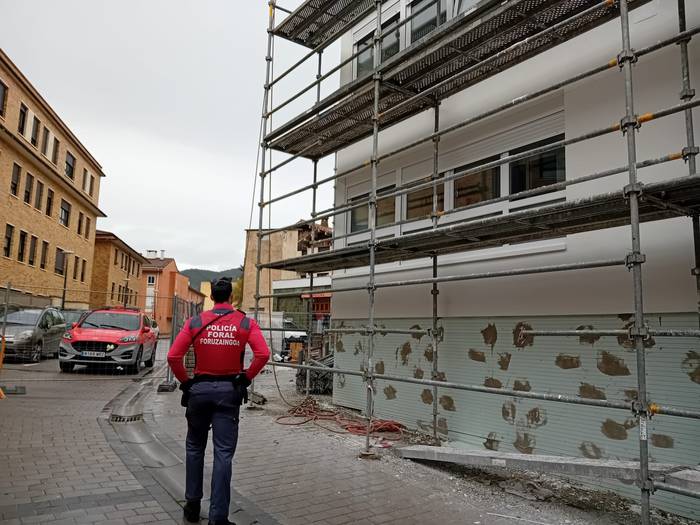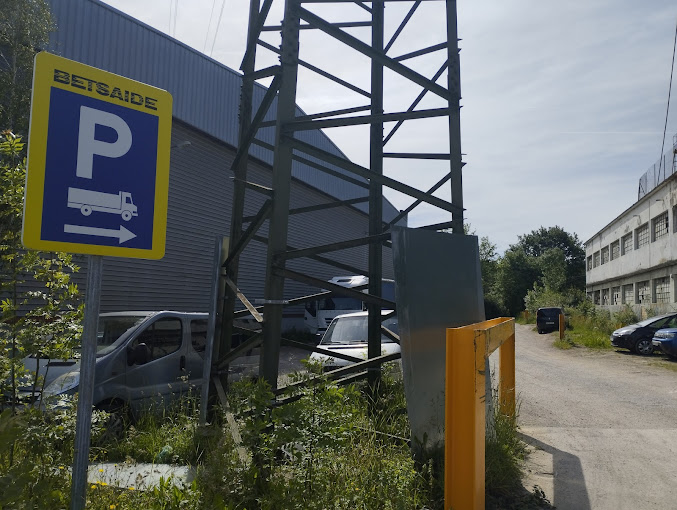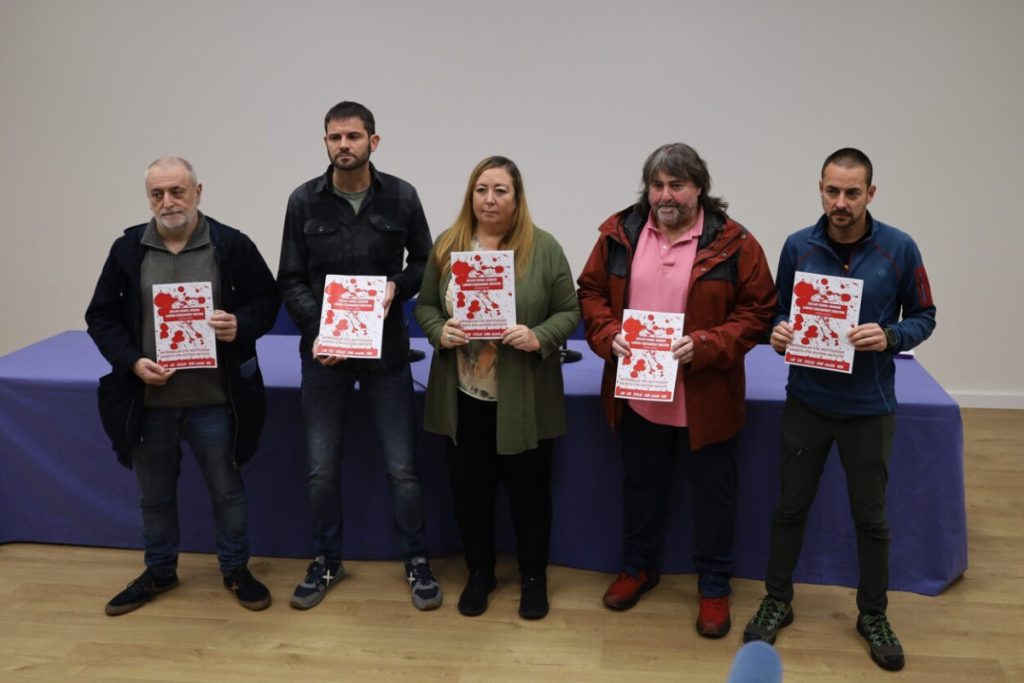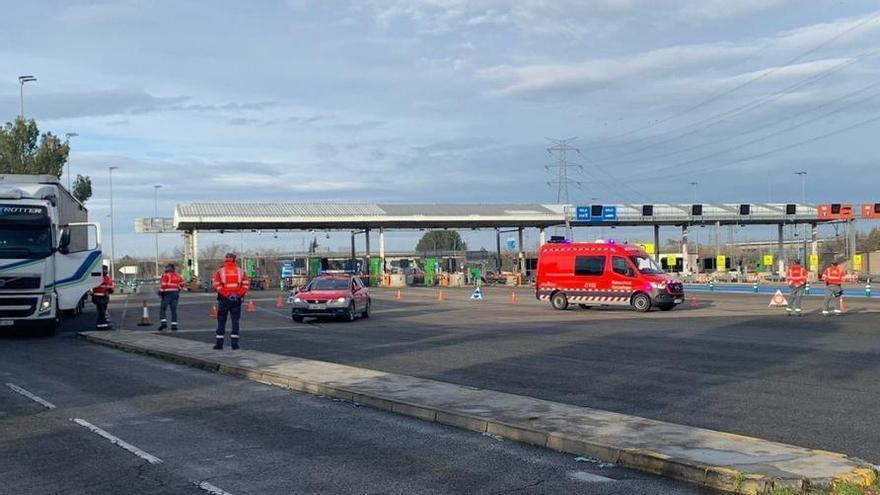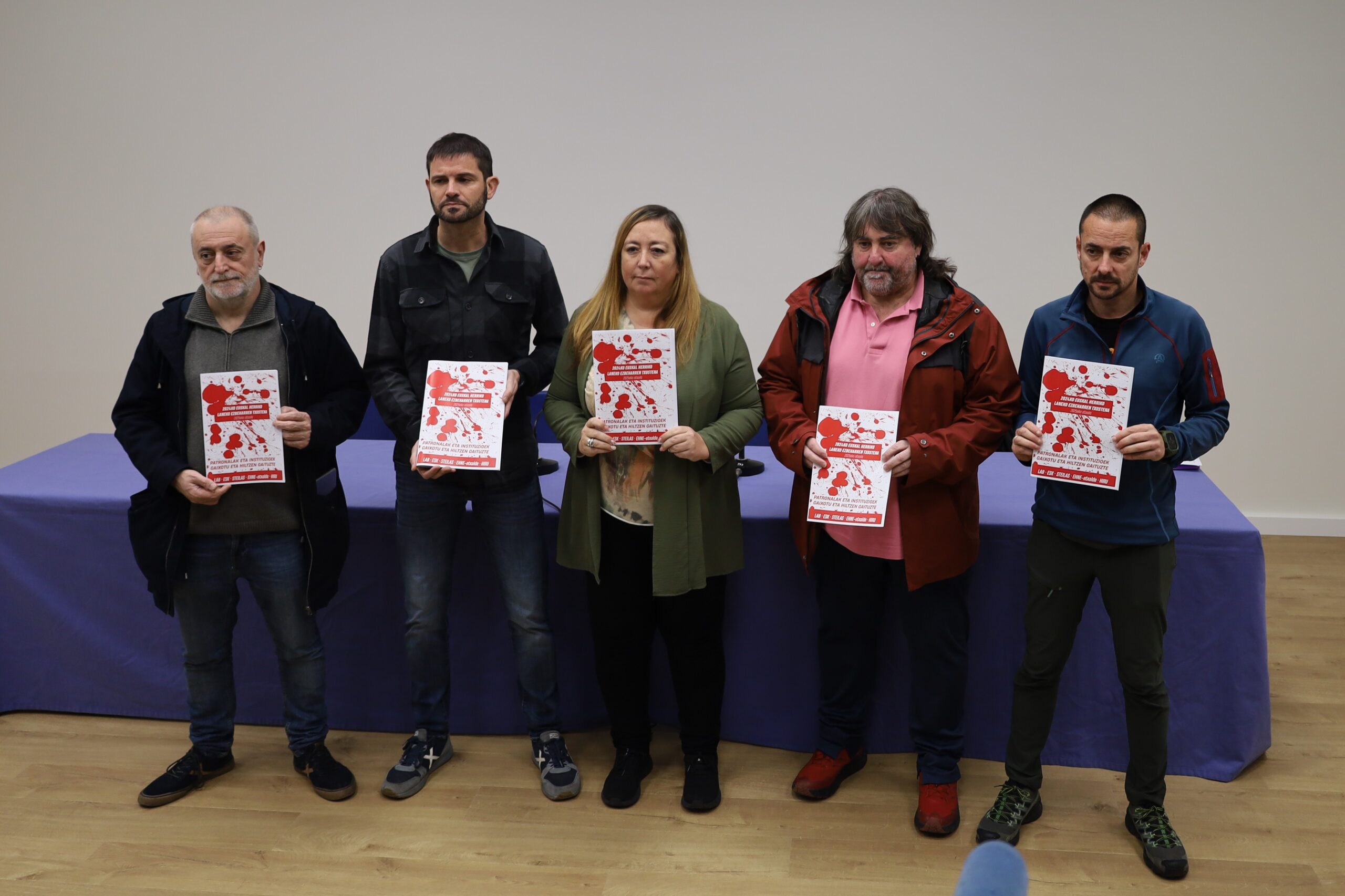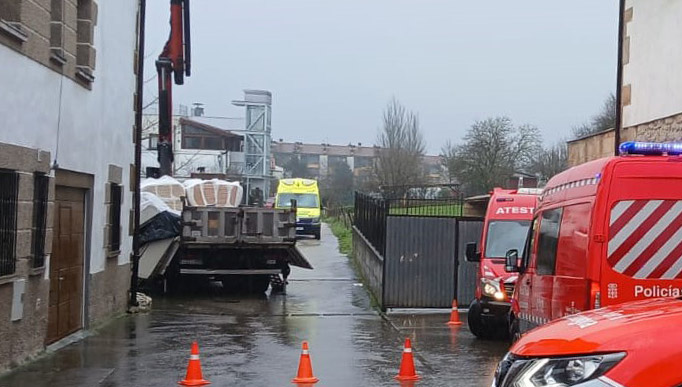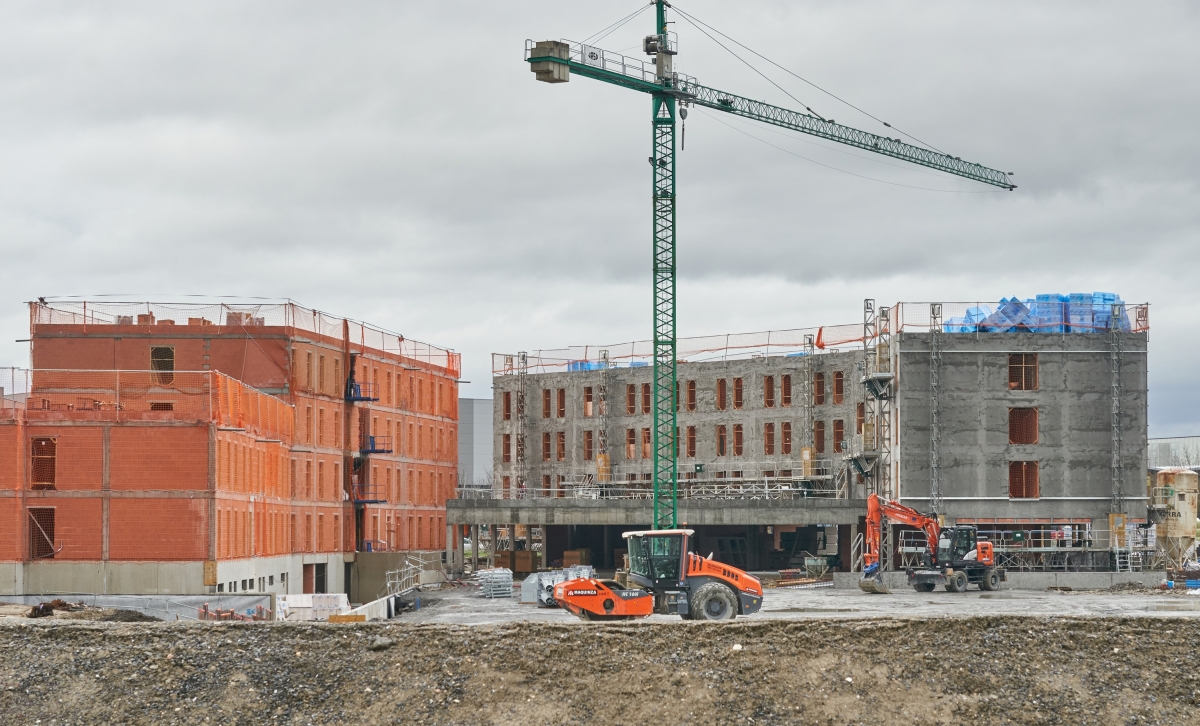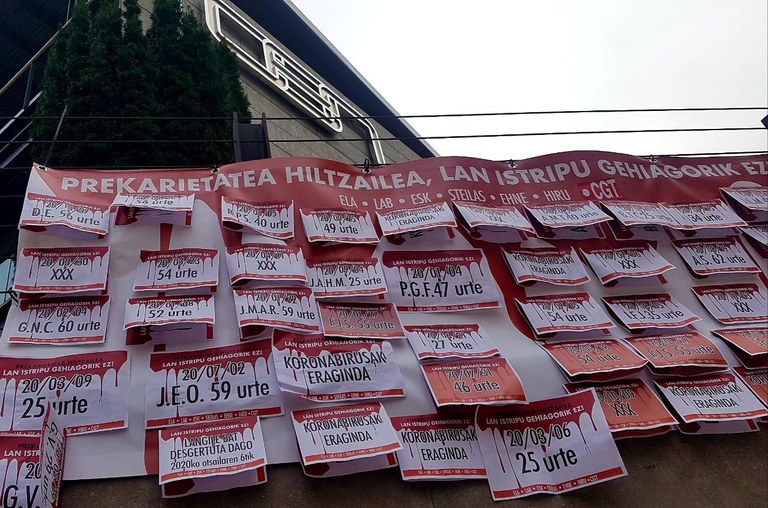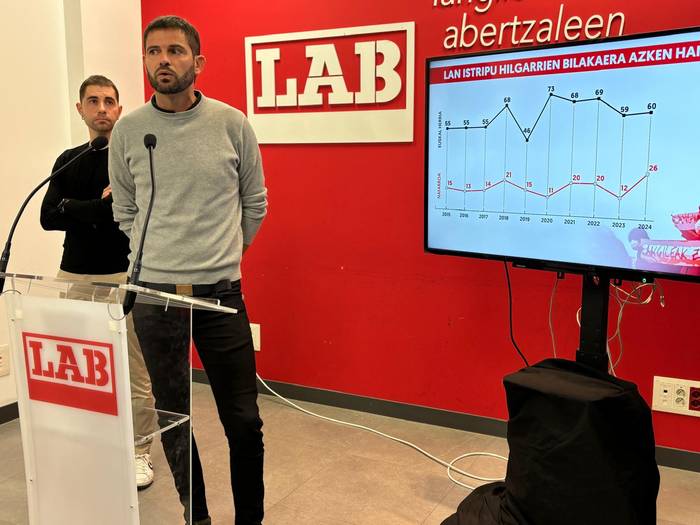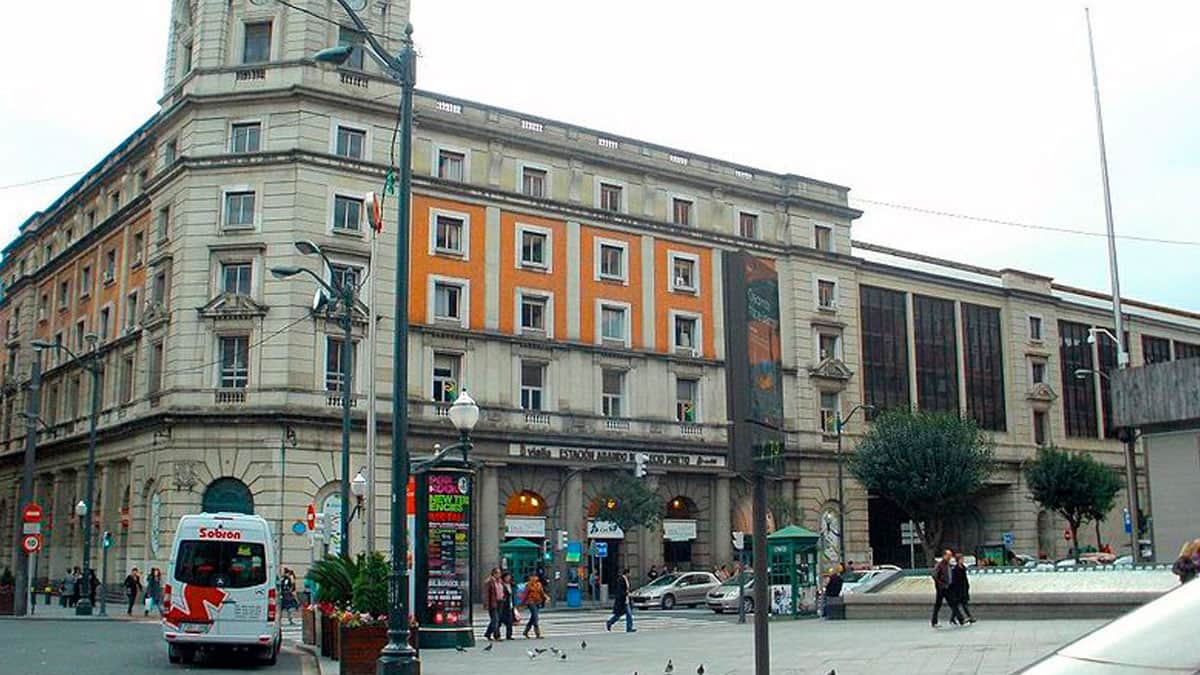"They went into a camper and took the worker who had a pierced leg like a dog."
- The workers have accused the company's management of mistreatment of workers, signing training documents on behalf of workers, inadequate management of accidents at work... Aiaraldea has contacted the director of Aiaraldea Hedabidea, who has not yet received any reply.

Two weeks have passed since the death of a 24-year-old worker in the company Zorroza waste management. Since then, various information has been published on the activity of this workshop in Murga.
The Aiaraldea media has spoken to the six people who worked on the site, according to Radio Euskadi. Three of them have made their statements through a video or audio interview, as reported by Europa Press. The other three have wanted to remain anonymous. However, in the report of the experiences and visions of the six within the company, similar things have been mentioned.
Lack of training
Gavrilá Vasile Zubascu was working there three years ago. “The first three weeks were fine, but then what the contract said was not fulfilled. I entered as a driver and changed the hydraulic pumps”, said the young operator, “there was no fixed post, your function could change from day to day”.
“I didn’t take the courses, I didn’t see what they signed in my name, I didn’t see anything.”
The worker insisted that there was no training. “I was told that I had some training courses. I asked who had signed them and they replied that they had signed them. I didn’t take the courses, I didn’t see what they signed in my name, I didn’t see anything.”
The rest of the workers have also made testimonies similar to those of last week. “Training? What training? There was no training,” said Txebi Landaburu of Amurrio, “if I had to do something, you would enter the machine and it’s already there.”
ill-treatment
Landaburu was working at the factory for about eight months. The neighbour of Amurrio has denounced verbal abuse by the director of the centre. “This attitude was above all towards foreigners,” he stressed, “I had it in very bad conditions. They entered at seven in the morning, ate a couple of bowls and sometimes, in the summer season, they were up to eight or nine in the afternoon, more than ten hours.”
Felix (invented name) also pointed out something similar to Aiaraldea: “I once started at seven in the morning and came back at eleven in the evening.” In his words, it was common for there to be more hours than expected at the factory's production plant. “Everything was done in a hurry, there was no time to have coffee and rest for five minutes. The treatment was very bad, and if you responded, you were threatened with being fired.”
“The person responsible told me to quit the job because if I didn’t break my head,” he said.
The workers have denounced that most people did not spend much time working. “There was one who started working at seven in the morning and it didn’t last until the afternoon,” Felix says, “if you were discharged for two days, for example, for a cold, when you were back, you were fascinated by life, so that you could go on your own.” Adrián, invented name, tells something like this: “The person responsible told me to quit the job because if I didn’t break my head.” In his words, most of the plant workers remained there "a few weeks of work."
One of the exceptions is the truck driver Luis Ángel Barrena, who has been slightly injured. Between 2005 and 2017 he worked at the company Zorroza. The operator of Basauri explained that in the first few years he has not had any kind of work conflict. Later on, problems started with a truck. "I didn't have a brake. I took him to see what was going on and when I came back I had an accident.” So the director's attitude changed. “I followed me at all times. I didn’t take any trip and at noon I kept myself inside and I couldn’t go to eat.” The period of anxiety loss is about 16-17 months. “They offered me another job and I left.”

More accidents at work
The former workers have also denounced the situation of all machinery and infrastructure in the factory. “There were no closets, no clocks, no showers to set the time,” Landaburu said. “Three or four trucks were fine, but the rest were pretty bad. There were always problems: they didn’t stop, they were old... they also let them go there,” Barrena stressed. Another truck driver has also explained a similar thing: “The trucks were scary. One of them broke up and fired me. I was happy, I'd rather be at home than play life."
“If a machine was damaged, some piece would be removed to keep it working.”
All the workers say the same thing: there was no safety. Landaburu says: “If a machine was damaged, some piece would be removed to keep it working.” The neighbor of Amurrio explained that in this way there was one of the most serious occupational accidents that workers remember when a car of the phenwis type pierced the leg of an operator. “Nobody called anyone. We said they called 112, but they put him in a van and took him to the mutual as a dog.”
According to Felix, the decision not to call emergency services was a common practice among the management of the company. “Sometimes they told the injured worker to go to each other alone.”
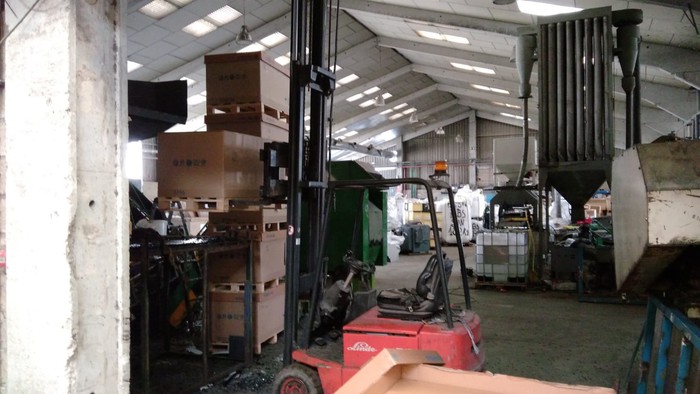
Gavrilá Vasile Zubascu suffered this insecurity on his skin. “They sent me to do everything, alone. If the tape was stuck, you had to lift the broom from the back of the mill, which was fastened with a half-rotten ribbon,” explains the operator resident in Amurrio, “that tape had an extendable key to block and clean it. But because I didn't have anyone to help, I managed to do it as I could. I took the key, the tape came off and took three fingers. I stayed there until a truck driver arrived. When I went to those responsible, they told me to throw cold water and come back, to continue destroying the wood.”
Garbage everywhere
The workers have also denounced the way in which the waste coming to the factory was managed. “When I was the trash pile was 4 meters high,” Zubascu stressed, “The City Hall didn’t allow that, but when the controls came, they loaded some trucks, they took things off a bit and it’s, nothing happened.”
“When the controls came in, I would carry some trucks, take things off a bit, and, you know, nothing happened.”
In the same line follows Felix: “They brought a glass of other companies to cover it with other things and take it hidden. Something similar was done with fat buckets and gasoline.” The operator has highlighted that Zorroza waste management is a “recycling” company: “I recycle it at home, but this company does just the opposite, it mixes everything”.
But the most striking case is the one that Zubascu lived. “When a stuck septic pit was emptied, instead of moving the material from the area, they let it spread out on the back of the factory, on the ground. There was little concrete, most of it was land. I had to walk with boots so I wouldn’t fill them with feces, but it didn’t matter to them.”
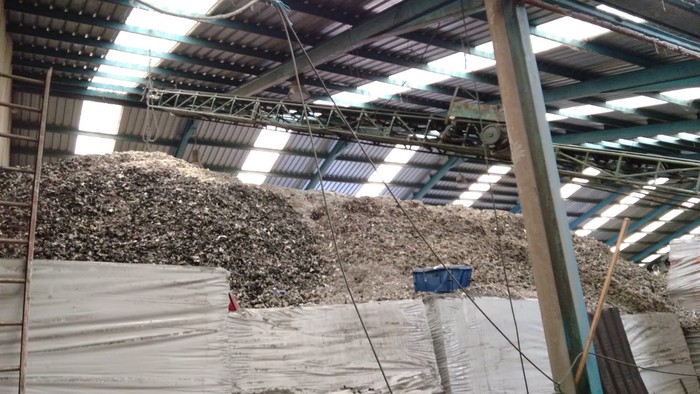
Pending a response from the management
The Aiaraldea medium has contacted the director of the company Zorroza waste management to complete this article, which has not received a reply at the moment.
Buñueleko (Nafarroa) kasuan, 34 urteko gizona makina batean harrapatuta geratu da. Arratzun (Bizkaia), aldiz, garabiak goi-tentsioko linea bat ukitu ostean hil da 61 urteko gizona.
Betsaide enpresan gertatu da, 08:00ak aldera. Urtea hasi denetik gutxienez bederatzi behargin hil dira.
2024ko laneko ezbeharren txostena aurkeztu dute LAB • ESK • STEILAS • EHNE-etxalde eta HIRU sindikatuek aurtengo otsailean. Emaitza larriak bildu dituzte: geroz eta behargin gehiago hiltzen dira haien lanpostuetan.









